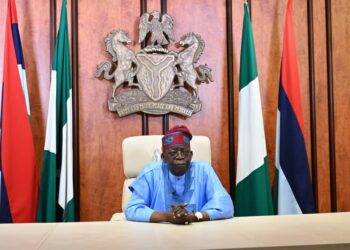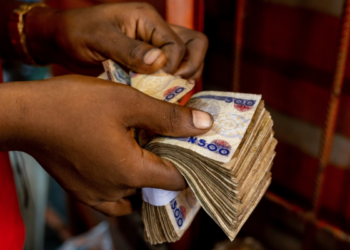Recently, President Muhammadu Buhari disclosed in his budget presentation to the National Assembly that the N10.78 trillion budget deficit for 2023 will be covered by borrowing, selling off national assets, and only financing specific projects.
To help cover the projected shortfall, the Senate approved N8.4 trillion ($19 billion) in fresh loans for 2023. A projected N7.3 trillion will be borrowed this year.
The World Bank estimates that by the end of 2022, debt service expenses in Nigeria might reach 102% of total government revenue. Debt service had already exceeded revenue in the first four months of this year.
Such a story is unsupportable from the point of view of income, corruption, value for money, and project implementation.
Nigeria, the largest economy in Africa, can afford its current debt profile because it has the resources to make all required interest and principal payments on time. However, the growing debts owed by Nigeria to several lending institutions have had no positive effects on the lives of the people.
According to projections, 95 million Nigerians will be living below the poverty line by the end of 2022, up from 82.9 million in 2019. while inflation was 20.52% as of August 2022.
With a $40 billion foreign debt, of which $15.6 billion is in Eurobonds, the majority of Nigeria’s debt is in local currency, the naira. The $100 million in monthly interest payments on the Eurobonds is a small portion of what fuel subsidies cost.
The other foreign debts are long-term, bilateral, or multilateral loans with extremely low-interest rates and lengthy grace periods. According to DMO data, debt service for bilateral and multilateral debts cost $140 million in Q2 2022. For Nigeria, that is less than $50 million every month, which is not a lot.
It is a fact that debts in naira exposure are perpetually produced to pay off existing debts. This indicates that the stock of outstanding naira debt is increasing and boosting the money supply with inflation off the roof. Though investors will continue to purchase recently issued naira bonds, nevertheless, as long as the market remains confident in the overall system.
The current FGN budget deficit is so huge that it cannot be covered by the about N250 billion monthly DMO bond auction without dramatically raising interest rates. It may be because the difference seems to wind up in “ways and means” that it is increasing by about N500 billion a month.
The official numbers for domestic debt do not include the advances made to the federal government by the CBN, known as Ways and Means, and as a result, the domestic debt of the FG is understated by roughly half.
Under the CBN Act’s Ways and Means provision, the Central Bank of Nigeria (CBN) provided the federal government with loans totaling N22 trillion in August 2022.
Nigeria’s option remains limited as the current state of the world’s bond markets is one of high volatility, rising rates, and falling bond prices. Additionally, as several African issuers’ governments request help from the IMF, the credit quality of some of these issuers is now in doubt.
Leakages like the rise in oil theft and the subsidization of gasoline, both of which drastically lower the revenue from oil sales that once made up the majority of government revenue, exacerbate the revenue crisis.
Oil theft has practically halved Nigeria’s oil production, and the majority of the country’s earnings that should be made from the sale of crude oil is lost to petrol subsidies, which are allegedly at the benefit of the very few at the expense of the Nigerian state.
In the first half of 2022, just the petroleum subsidy ate up N1.59 trillion (January to June). The full-year 2022 budget for social development and poverty reduction (N462 billion), health (N876 billion), education (N1.34 trillion), and infrastructure (N1.42 trillion) is, each, lower than the N1.59 trillion spent on gasoline subsidies during the first half of the year, it was noted.
Numerous macroeconomic fundamentals have gotten worse, and inclusive development is at a low level. Nigeria must make quick, audacious, and comprehensive reforms to stop the sharp decline and its detrimental effects on the well-being of its people. These reforms must be supported by accountability, inclusivity, and openness.
Fuel subsidy elimination should be supported by excellent communication and targeted transfers to the most vulnerable, and the FG must be daring to pursue this initiative.
To increase the amount of naira it receives from FX income, FG must increase its tax exposure and the CBN might need to devalue the naira once again.

























